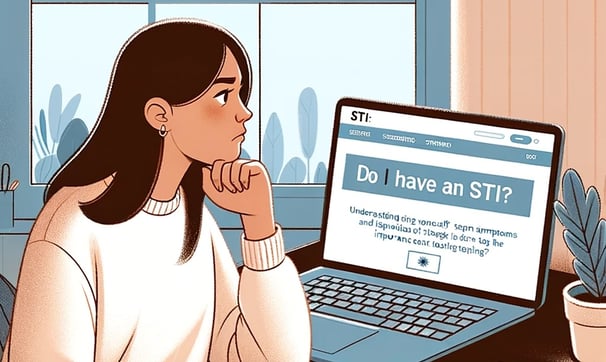Do I Have an STI? Understanding Symptoms and the Importance of Testing
EDUCATION


Discover essential insights on recognizing STI symptoms and the significance of timely testing for maintaining sexual health. Learn about various testing options, including local clinics, to ensure responsible sexual wellness.
Do I Have an STI? Understanding Symptoms and the Importance of Testing
If you're questioning, "Do I have an STI?" you're not alone. Many sexually active individuals face this concern at some point. Recognizing symptoms and understanding the importance of testing are crucial steps in maintaining your sexual health.
Understanding STI Symptoms
STIs can present a range of symptoms, but they can also be asymptomatic. Common symptoms include:
Unusual discharge from the penis, vagina, or anus
Pain during sex or urination
Sores, warts, or rashes in the genital area
Itching or irritation in the genital region
Unexplained rash or fever
The Silent Nature of STIs
Many STIs, like chlamydia and gonorrhea, can be completely asymptomatic, especially in their early stages. This means you could have an STI without knowing it, underscoring the importance of regular testing.
When to Get Tested
Consider testing if:
You have new or multiple sexual partners.
You have unprotected sex.
You exhibit any symptoms mentioned.
You are planning to start a new sexual relationship.
You or your partner have a history of STIs.
Types of STI Tests
Different STIs require different tests, often involving blood samples, urine samples, or swabs. Regular comprehensive testing, such as the services provided by STDCheck.com or your local family doctor or clinic, can cover a range of common STIs.
Taking the Next Steps
If you suspect you might have an STI:
Don’t Panic: Many STIs are treatable, and early treatment can prevent complications.
Get Tested: This is the only way to confirm if you have an STI.
Seek Treatment: Follow your healthcare provider’s recommendations.
Inform Your Partners: It’s crucial to inform any recent sexual partners so they can also get tested and treated if necessary.
Practice Safe Sex: Use condoms and have open conversations about STIs with future partners.
Prevention Is Key:
Use condoms correctly every time you have sex.
Discuss STI histories with partners.
Get vaccinated for preventable STIs like HPV and hepatitis B.
Conclusion
Asking “Do I have an STI?” is the first step towards taking control of your sexual health. Regular testing, like that offered by STDCheck.com, is essential for sexually active individuals. Remember, having an STI is nothing to be ashamed of. Prompt diagnosis and treatment are key to maintaining your health and the health of your partners.
